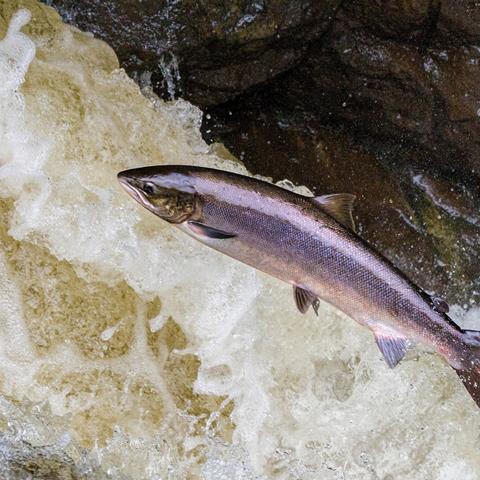When salmon farming took off in Norway in the late 20th century, we thought we were entering a brave new world of endless seafood and economic prosperity. Little did we know, we were also signing up for a marathon against some of the oldest and craftiest opponents on Earth: microbes. As a veterinarian and microbiologist working with fish health and welfare, I’ve witnessed how this microbial marathon has evolved – and how we’re often sprinting when we should be pacing ourselves.
In the early days, infectious diseases were the primary nemesis of salmon farmers. Bacteria and viruses seemed to lurk in every fjord. Our initial response to combat this was heavy-handed. High usage of antimicrobials became the norm, turning our salmon farms into battlegrounds drenched in antibiotics. But then came a Norwegian success story: through selective breeding, improved hygiene practices, and better control measures, we managed to dramatically reduce antimicrobial use. We thought we’d won the war.
But microbes are nothing if not resourceful. Just when we were patting ourselves on the back, along came the salmon lice – a tiny crustacean with a big appetite for fish skin. Our aggressive tactics to combat this new foe, including chemical treatments, mechanical removal, and even thermal treatments, stressed the fish to their limits. And guess who noticed? Opportunistic bacteria causing wounds, amoebas causing gill diseases, and a host of other microbial freeloaders seized the moment. It’s as if, in stomping out one fire, we’ve fanned the flames of several others.
We must remember that in the fight against microbes, we’re the newcomers. Microbes have been duking it out for billions of years, constantly evolving and adapting. They always seem to have another trick up their sleeve – or perhaps another sleeve altogether. Every time we think we’ve cornered them, they find a new escape route or a novel way to exploit our interventions.
Adding another layer to this microbial mille-feuille is the growing recognition that fish are sentient animals deserving of welfare considerations. Intensive production systems and treating fish as mere commodities not only raise ethical red flags but also make the fish more susceptible to diseases. Stressed fish are, after all, easy targets for pathogens. It’s a bit like sending an exhausted runner back onto the track and wondering why they keep collapsing.
So how much should we be meddling in this microbial marathon? There’s no doubt that antimicrobials have saved countless lives – both human and aquatic. But as we’ve seen in human medicine, we’ve shifted from fighting infectious diseases to battling lifestyle diseases like obesity and heart disease. Similarly, our farmed fish are now more prone to production diseases, a direct consequence of a relentless pursuit of higher yields and profits.
This brings us to the crux of the matter: the ethical implications of high-intensity fish farming. Is it acceptable to prioritize production over welfare?
Can we justify the use of fish as their own guinea pigs in the name of progress? Maybe we should look to other high-intensity production systems, such as the poultry industry, which faced high mortality rates and a heavy infection pressure, but that have successfully reduced this load through systematic hard work.
Perhaps it’s time we consider more sustainable and humane practices, and put the fish and their welfare first for once? Vaccination programs are important in preventing diseases, but we need to develop vaccines for a broader range of diseases and make them even more effective and less invasive. Probiotics, phages, and immunostimulants could offer alternative ways to bolster fish health. Moreover, improving farm designs to reduce stress and disease transmission could benefit both the fish and the bottom line.
Climate change is another wildcard in this equation. Warmer waters can exacerbate disease outbreaks and alter microbial communities in unpredictable ways. As we navigate this uncharted territory, flexibility and a willingness to adapt will be crucial.
In the end, maybe the race against microbes isn’t a marathon we can – or should – win. Perhaps it’s more about learning to run alongside them without tripping ourselves up. After all, in the grand relay race of evolution, microbes have been passing the baton for eons, while we’ve just laced up our shoes.
So let’s not sprint toward short-term gains at the expense of long-term sustainability. Let’s pace ourselves, consider the welfare of the fish, and remember that sometimes, the best way to move forward is to swim with the current, not against it. After all, in the grand ocean of life, we’re not just keepers – we’re also fish.








No comments yet